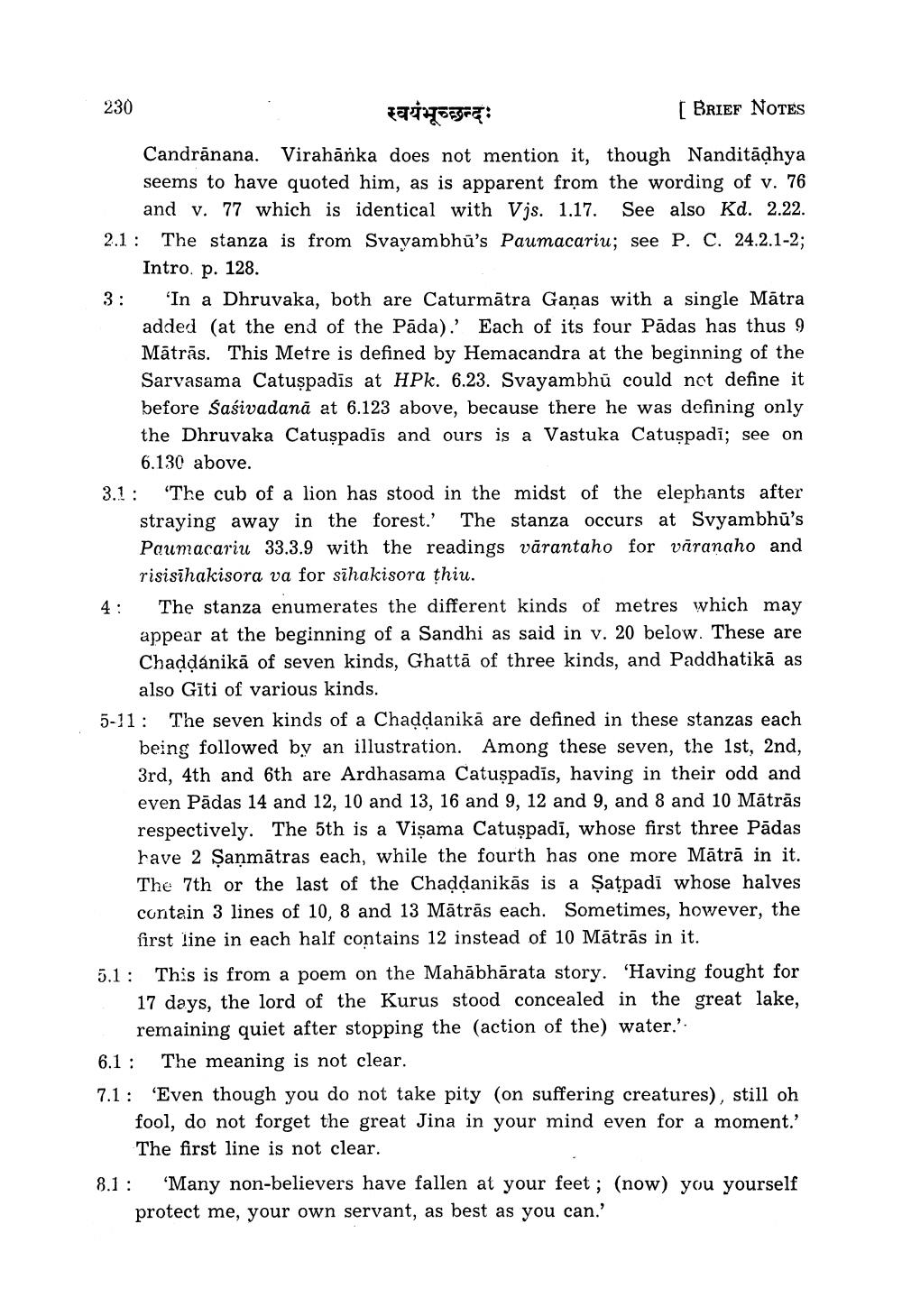________________
230
स्वयंभूच्छन्दः
Candrānana. Virahanka does not mention it, though Nanditaḍhya seems to have quoted him, as is apparent from the wording of v. 76 and v. 77 which is identical with Vjs. 1.17. See also Kd. 2.22. 2.1: The stanza is from Svayambhu's Paumacariu; see P. C. 24.2.1-2; Intro. p. 128.
3:
3.1:
4:
[ BRIEF NOTES
6.1:
7.1:
'In a Dhruvaka, both are Caturmātra Gaņas with a single Mātra added (at the end of the Pada).' Each of its four Pādas has thus 9 Mātrās. This Metre is defined by Hemacandra at the beginning of the Sarvasama Catuṣpadīs at HPk. 6.23. Svayambhu could not define it before Sasivadană at 6.123 above, because there he was defining only the Dhruvaka Catuṣpadis and ours is a Vastuka Catuṣpadi; see on 6.130 above.
8.1:
"The cub of a lion has stood in the midst of the elephants after straying away in the forest.' The stanza occurs at Svyambhu's Paumacariu 33.3.9 with the readings värantaho for varanaho and risisihakisora va for sihakisora thiu.
5-11 The seven kinds of a Chaddanika are defined in these stanzas each being followed by an illustration. Among these seven, the 1st, 2nd, 3rd, 4th and 6th are Ardhasama Catuṣpadīs, having in their odd and even Pādas 14 and 12, 10 and 13, 16 and 9, 12 and 9, and 8 and 10 Mātrās respectively. The 5th is a Vişama Catuşpadi, whose first three Pādas have 2 Ṣaņmātras each, while the fourth has one more Mātrā in it. The 7th or the last of the Chaddanikās is a Satpadi whose halves contain 3 lines of 10, 8 and 13 Mātrās each. Sometimes, however, the first line in each half contains 12 instead of 10 Mātrās in it.
The stanza enumerates the different kinds of metres which may appear at the beginning of a Sandhi as said in v. 20 below. These are Chaddánika of seven kinds, Ghatta of three kinds, and Paddhatikā as also Giti of various kinds.
5.1:
This is from a poem on the Mahabharata story. 'Having fought for 17 days, the lord of the Kurus stood concealed in the great lake, remaining quiet after stopping the (action of the) water.'.
The meaning is not clear.
'Even though you do not take pity (on suffering creatures), still oh fool, do not forget the great Jina in your mind even for a moment.' The first line is not clear.
'Many non-believers have fallen at your feet; (now) you yourself protect me, your own servant, as best as you can.'




